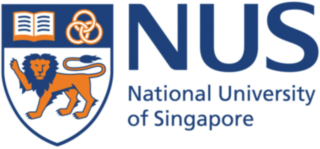
Research Fellow (Quantum Chemistry)
National University of Singapore
- Singapore
- Permanent
- Full-time
Accept ClosePress Tab to Move to Skip to Content LinkSearch JobsJob DescriptionJob Title: Research Fellow (Quantum Chemistry)Posting Start Date: 02/09/2025Job Description:Job DescriptionLithium-ion batteries (LIBs), currently serving as the primary energy storage devices for almost all portable electronics and electric vehicles, and now quickly expanding to large-scale grid storage, are dominating the energy storage market owing to their overall relatively high efficiency and reliability. However, their apparent limitations in energy density, poor safety record and long-term sustainability (i.e., limited resources for Li and key transition metals) are unable to meet the exponentially rising demands. The insolubility and insulating nature of the elemental sulfur and its discharge products along with the high solubility of intermediate polysulfides in the liquid electrolyte, lead to slow kinetics of polysulfide transformation and the "shuttle effect" during charge/discharge cycles. They result in rapid capacity fade upon cycling and poor rate performance. To address these challenges, in this project, we use an approach to employ catalytically active materials with high enough conductivity that can both effectively anchor and more importantly catalytically convert polysulfides in the sulfur cathode involving multistep reactions.The main method used in this project is DFT-based electrochemical simulation. The high-throughput screening and machine learning will also be integrated into DFT calculations.QualificationsCandidates should have a PhD degree in Materials Science Engineering, Chemical Engineering, Physics or a closely related field. They should also have excellent communication skills, both oral and written, and able to guide undergraduate students to conduct projects. Successful candidate is expected to perform DFT calculations to discover new catalysts and study their properties. Experiences in DFT-based high-throughput calculations and electrochemistry is mandatory. In additional, experiences in batteries and machine learning are preferred.